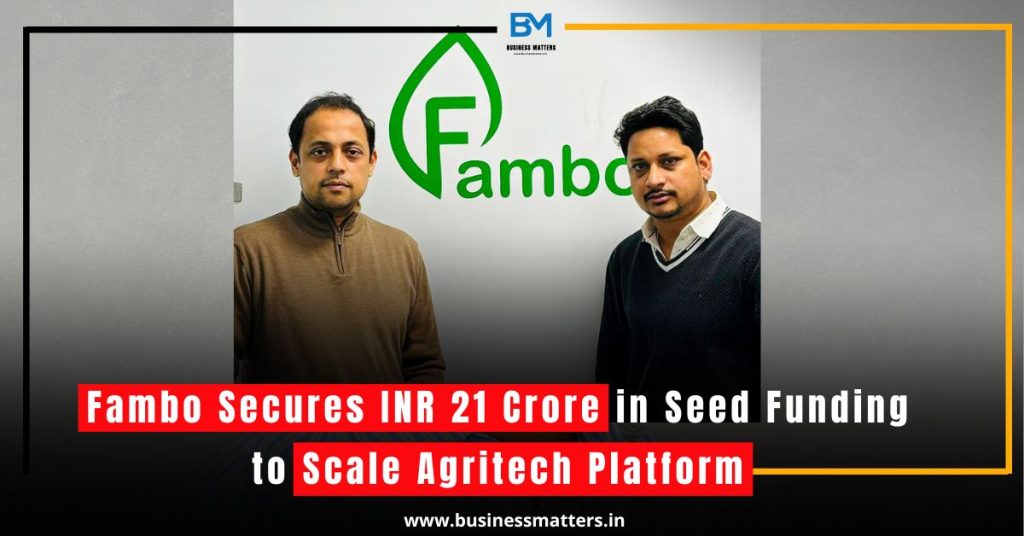Fambo, an innovative agritech startup, has successfully raised INR 21 Crore (approximately $2.4 million) in a seed funding round led by EV2 Ventures. The fresh capital will enable the company to expand its operations across India, establish an export vertical, invest in cutting-edge technology, and build a larger network of partner farms. This funding comes as a significant milestone for Fambo, which was founded in 2022 by Akshay Tripathi and Sudarshan Satle.
Connecting Farmers with Businesses using Fambo
Fambo operates as a unique platform designed to bridge the gap between farmers and businesses in the food industry, particularly Quick Service Restaurants (QSRs), hotels, and cloud kitchens. By directly connecting farmers with these businesses, Fambo aims to streamline the supply chain for fresh produce. This not only ensures a consistent supply of high-quality ingredients but also reduces food waste by cutting out intermediaries in the traditional food distribution process.
Through this model, Fambo enhances farm-to-fork traceability, ensuring that restaurants can trust the quality of their ingredients while managing their provisions efficiently. By establishing direct relationships between farmers and businesses, Fambo eliminates many inefficiencies in the supply chain, benefiting both parties.
Also Read:- Swiggy Expands Instamart to 76 Cities and Launches Standalone App
Leveraging AI for Efficiency
One of the key innovations that sets Fambo apart from competitors is its use of Artificial Intelligence (AI) to power its platform. The AI technology helps businesses manage their inventory, track provisions, and predict demand more accurately, which reduces wastage and optimizes purchasing strategies. The platform also allows for end-to-end traceability, giving businesses the ability to track the origin of their ingredients and ensure that they are sourcing produce sustainably and responsibly.
For farmers, the AI-powered platform offers valuable insights into market trends and helps them better understand the demand for specific products. This information enables farmers to optimize their crop production, improve efficiency, and increase their revenue by selling to high-demand clients, such as hotels, QSRs, and cloud kitchens.
Scaling Up Operations Across India
With the seed funding, Fambo plans to significantly scale up its operations across India. The company is focused on expanding its footprint to include more farms and more businesses within the food industry. By broadening its network of partner farms, Fambo aims to build a more resilient and diverse supply chain that can meet the growing demands of its customers.
Additionally, Fambo plans to establish an export vertical, opening up new revenue streams by connecting Indian farmers with international markets. This could provide a unique opportunity for Indian farmers to access global buyers, further increasing the economic viability of their operations.
Technology and Innovation as Key Pillars
Technology will continue to play a central role in Fambo’s strategy moving forward. The company intends to invest further in developing its platform, enhancing its AI capabilities, and improving user experience for both farmers and businesses. Through these technological advancements, Fambo aims to stay ahead of the curve and become a leader in the agritech sector.
With the additional funding and its commitment to innovation, Fambo is poised for rapid growth in the coming years. As the company scales, it will continue to provide value to its stakeholders by improving the efficiency of the agricultural supply chain, reducing food waste, and ensuring a steady supply of fresh, quality produce to businesses across India and beyond.
Fambo’s seed funding round not only signals investor confidence in the company but also reflects the growing interest in technology-driven solutions for the agricultural sector. As the agritech industry evolves, startups like Fambo are playing an essential role in transforming the way food is produced, distributed, and consumed, paving the way for a more sustainable and efficient future.


